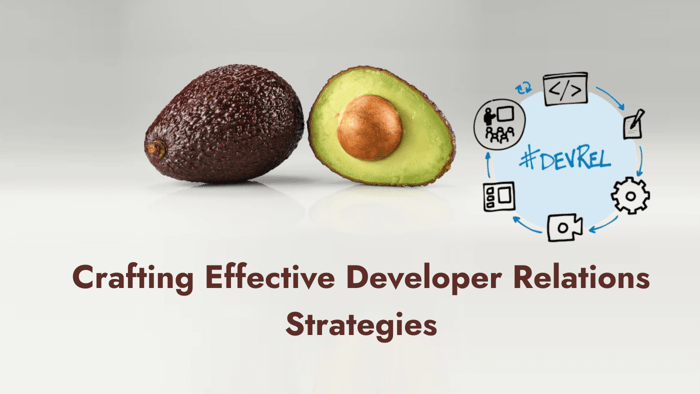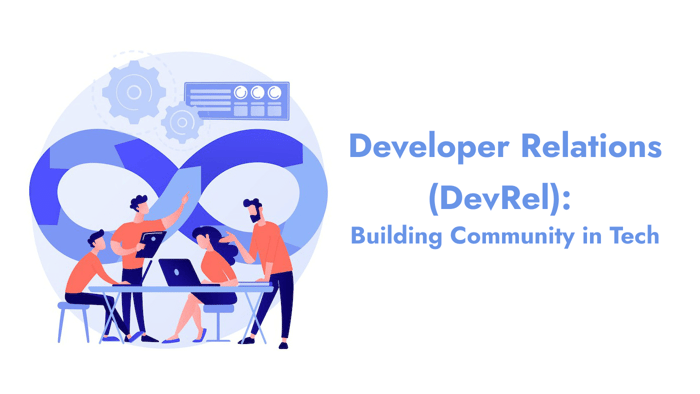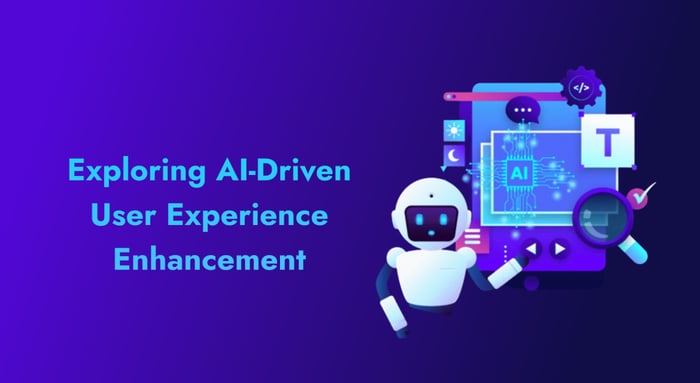Learn how to craft effective developer relations strategies
Today's business world is no longer about simply having a great product or service. Building a strong community around those products is equally crucial when building products for developers. Developer relations (DevRel) is about forging a liaison between a company and its developer audience, transcending traditional marketing and customer service to foster genuine connections and ensure developers maximize their tools' potential.
At its core, developer relations is about building and supporting a community. This means reaching out to developers through various channels, understanding their needs, and giving them the resources they need to use a product successfully. This may include organizing events like hackathons and meetups, providing clear instructions and tutorials, and offering personalized support. The aim is to create a lively, engaged community where developers feel valued and heard, easily share ideas and collaborate.
This blog is all about making developer relations easier to understand and giving you practical ways to create and maintain effective relationships with your developer community.al ways to create and maintain effective relationships with your developer community.
Understanding Developer Relations
Developer relations, or DevRel, is a multifaceted discipline that encompasses roles and responsibilities aimed at nurturing relationships between tech companies and their developer communities. Positioned at the intersection of product, engineering, and marketing, DevRel's daily tasks can vary widely across organizations, often integrated into other departments without a distinct career path.
The DevRel Framework:
- Developer Marketing: Outreach and engagement to raise awareness and convert developers to use your product.
- Developer Education: Providing documentation and educational resources to aid learning and build affinity with your product and community.
- Developer Experience (DX): Ensuring a smooth interaction with your developer portal, product, and documentation.
- Developer Success: Activities to nurture developers as they scale with your product, focusing on retention.
- Community: The foundation of a sustainable program, requiring continuous nourishment for growth and health.
Building a Developer-Friendly Community
A thriving developer community is built on accessible documentation, robust support channels, and developer-friendly APIs and SDKs, that are essential for fostering engagement, collaboration, and innovation.
Accessible Documentation and Resources
Clear, well-structured documentation is fundamental. Detailed API references, code samples, tutorials, and quick start guides ensure developers can effectively use available tools. Interactive documentation platforms, like Swagger for APIs, enhance this experience, allowing developers to experiment within the documentation itself. Multilingual support and regular content updates cater to the global developer community's diverse needs.
Robust Support Channels and Forums
Support channels and forums are crucial for continuous learning and problem-solving. Platforms like Stack Overflow, Discord, and Slack offer real-time assistance and peer-to-peer support. Hosting your forums can centralize discussions, feature requests, and bug reporting. Regular "Ask Me Anything" (AMA) sessions with product engineers provide direct access to expertise, building trust and rapport within the community.
Developer-Friendly APIs and SDKs
APIs should be well-documented, consistent, and intuitive, minimizing the learning curve for new users. Providing SDKs in multiple programming languages increases accessibility and usability. Maintaining a robust API status page and offering tools like Postman collections significantly enhance the developer experience. Open-source SDKs and libraries empower developers to contribute and customize their tools.
Building a developer-friendly community requires a multifaceted approach. By focusing on accessible documentation, robust support channels, and developer-friendly APIs and SDKs, you create an environment that encourages participation, collaboration, and innovation. This not only enhances the user experience but also drives the growth and success of your technology ecosystem.
Engaging Developer Communities
Effective DevRel involves engaging with developers through events like conferences, hackathons, and meetups, providing platforms for learning, sharing ideas, and collaborating. These events should be inclusive and accessible, attracting diverse participants, enriching the community and fostering a sense of belonging.
Leveraging Social Media and Online Communities
Engaging developers globally through social media and online communities is essential. Platforms like Twitter, LinkedIn, GitHub, and Reddit are hubs for discussing trends, sharing knowledge, and seeking advice. Establishing a strong online presence, participating in conversations, and promoting events are key activities. Dedicated channels on Slack or Discord create focused environments for community interactions, building trust and loyalty.
Personalized Interactions
Personalized interactions are crucial for building strong relationships with developers. Effective engagement methods include direct messaging, personalized email newsletters, and one-on-one mentoring sessions. Publicly recognizing individual contributions fosters a sense of appreciation and belonging. Regular "office hours" allow developers to ask questions and get real-time assistance, further strengthening these relationships.
Measuring Success and Iterating
The impact of Developer Relations (DevRel) should be evaluated using metrics that reflect its unique value, rather than relying solely on traditional marketing indicators. Instead of focusing solely on metrics like views, which are typical in marketing, it's important to consider metrics such as depth of engagement, community growth, consistency, access to critical insights, and email list expansion. This approach ensures that DevRel is acknowledged for its role in nurturing the community, driving innovation, and providing valuable feedback for product development.
DevRel differs from marketing in that developers generally have a strong aversion to typical marketing content that can come off as insincere. Instead, developers prioritize detailed technical insights and features over vague marketing jargon. This differentiation is particularly pivotal in bottom-up and open-source sales strategies, which are often vital for the adoption of developer tools.
Defining Key Performance Indicators (KPIs)
Establishing clear KPIs, such as active members in communication channels, user contributions, and event attendance, helps gauge community engagement and growth. Tracking "superusers" and analyzing participation in discussions and contributions can provide valuable insights.
Feedback and Sentiment Analysis
Regular feedback and sentiment analysis gauge community health and satisfaction. Surveys, social media interactions, and direct communications provide data to identify pain points and improvement areas. Sentiment analysis tools offer a broad view of community attitudes, guiding strategic adjustments.
Iterating Based on Data-Driven Insights
Data-driven insights from KPIs and sentiment analysis inform the iteration of DevRel strategies. Adjusting engagement approaches, content creation, and feedback loops based on real-time data ensures alignment with developers' needs and the company's objectives, fostering a collaborative environment that supports innovation and growth.
By establishing quantifiable KPIs, consistently gathering feedback, and refining strategies in response to these findings, DevRel experts can cultivate a dynamic and involved developer community. This iterative approach guarantees that the community stays attuned to both the requirements of developers and the goals of the company, fostering a cooperative atmosphere that facilitates innovation and expansion.
Challenges DevRel Teams Face
Developer Relations (DevRel) teams encounter numerous challenges that can hinder their capacity to engage and support developer communities efficiently. These challenges encompass resource constraints, conflicting priorities, obtaining management support, fostering community growth and engagement, and accurately assessing performance. Overcoming these obstacles is vital for DevRel teams to succeed and provide substantial value to their organizations and the developer communities they cater to.
Limited Resources and Competing Priorities
DevRel teams often operate with constrained resources, balancing immediate developer needs with long-term strategic goals. Prioritizing tasks and advocating for necessary resources are crucial for managing multiple initiatives simultaneously.
Hiring and Scaling
Finding candidates with the right mix of technical expertise, communication skills, and community management experience is challenging. Continuous learning and adaptation are required to keep pace with technological changes, complicating hiring and training processes.
Management Buy-In
Securing management buy-in requires aligning DevRel goals with organizational objectives and presenting compelling data that demonstrates the community’s impact on business outcomes. Success stories and data-driven insights strengthen these arguments.
Community Growth and Engagement
Maintaining engagement and personal connection as communities grow is a persistent challenge. Organizing events, creating valuable content, and maintaining active communication channels are essential for fostering a sense of belonging and sustained participation.
Strategy and Measurement
Developing a robust strategy and effectively measuring the impact of DevRel activities are critical for demonstrating value and making data-driven decisions. Traditional metrics used in marketing and sales may not fully capture the nuances of developer engagement and satisfaction. DevRel teams need to identify relevant metrics that reflect community health and contributions to business goals. This may include metrics like developer satisfaction, community activity levels, and the influence of community feedback on product development.
To tackle the challenges facing DevRel teams, several strategies can be put into action. Firstly, it is crucial to secure management buy-in by clearly demonstrating how community activities align with business objectives, thereby ensuring the allocation of necessary resources. This can be reinforced by leveraging success stories and data-driven insights to strengthen the case.
Despite the significant challenges faced by DevRel teams, strategic planning, effective communication, and a commitment to continuous improvement can help mitigate these issues and enable teams to successfully build and sustain developer communities.
Conclusion
Developer relations (DevRel) is pivotal in building and nurturing relationships between technology companies and their developer communities. Balancing technical expertise with strong communication and community management skills, DevRel focuses on community engagement, support, and developer success.
Key Takeaways:
- Community Building: Focus on meaningful connections and support.
- Framework Components: Incorporate developer marketing, education, experience, success, and community.
- Engagement Strategies: Host inclusive events and personalize interactions.
- Measuring and Iterating: Use data-driven insights to refine strategies.
Overcoming challenges like limited resources and securing management buy-in requires strategic planning and continuous adaptation. Implement these strategies to build a vibrant developer community that drives your technology’s success.
Akava would love to help your organization adapt, evolve and innovate your modernization initiatives. If you’re looking to discuss, strategize or implement any of these processes, reach out to [email protected] and reference this post.




![[Guest Post] Developer Ecosystems in Large Enterprises](https://dropinblog.net/cdn-cgi/image/fit=scale-down,format=auto,width=700/34251246/files/featured/Dev_Ecosystem___Feature.png)
